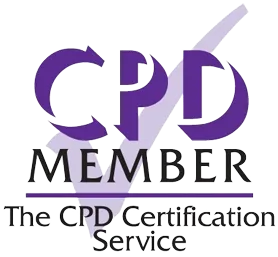28 Mar 2025
Recommended
Minimum 30 mins
Course
Access
Certification
Voiceover

Consent is a fundamental ethical and legal requirement in health and social care, safeguarding individuals’ autonomy and ensuring informed decision-making about their treatment and care. The Consent in Health and Social Care course provides healthcare professionals with comprehensive knowledge of the principles, legal frameworks, and best practices surrounding consent, aligned with UK guidelines such as the Mental Capacity Act 2005 and Deprivation of Liberty Safeguards (DoLS).
Participants will explore the principles of informed consent, including voluntariness, capacity, and adequate information, and gain an understanding of challenges associated with vulnerable populations, such as children, older adults, and individuals with mental health conditions. The course also addresses effective communication strategies, legal documentation, and managing complex consent scenarios, such as emergencies and treatment refusal.
By completing this course, participants will be equipped to uphold the highest ethical, legal, and professional standards in obtaining and recording consent, fostering trust and respecting patient autonomy in healthcare settings.

 £20
£20
Learning Outcomes.
By the end of this course,participants will be able:
To understand the ethical principles of informed consent, including voluntariness, capacity, and adequate information provision.
To apply legal frameworks such as the Mental Capacity Act 2005 and DoLS in consent processes.
To develop strategies for obtaining consent from vulnerable populations while addressing specific challenges.
To implement best practices for documenting and recording consent, ensuring compliance with legal standards.
To use effective communication techniques to explain risks, benefits, and alternatives for informed decision-making.
To navigate complex scenarios, including emergencies, treatment refusal, and cultural considerations, while respecting patient autonomy.
Course
Contents.
01
Definitions, principles, and ethical considerations.
03
Verbal, written, and non-verbal consent and their applications.
05
Challenges in obtaining consent from children, older adults, and individuals with cognitive impairments.
08
Best practices for recording and maintaining consent documentation.

06
Addressing language, cultural, and other barriers to consent.
09
Ensuring compliance in cases involving restrictions on individual freedoms.
02
The Mental Capacity Act 2005, DoLS, and advance decisions.
04
Explaining risks, benefits, and alternatives for shared decision-making.
07
Emergencies, treatment refusals, and balancing patient autonomy with clinical responsibilities.
10
Strategies for maintaining patient trust and respecting autonomy.
The Consent in Health and Social Care course equips healthcare professionals with the knowledge and strategies to manage consent processes effectively, ethically, and legally. By focusing on informed decision-making, vulnerable populations, and complex scenarios, this training ensures participants can uphold patient autonomy, comply with UK guidelines, and maintain trust and professionalism in diverse healthcare contexts.
 Summary
Summary


